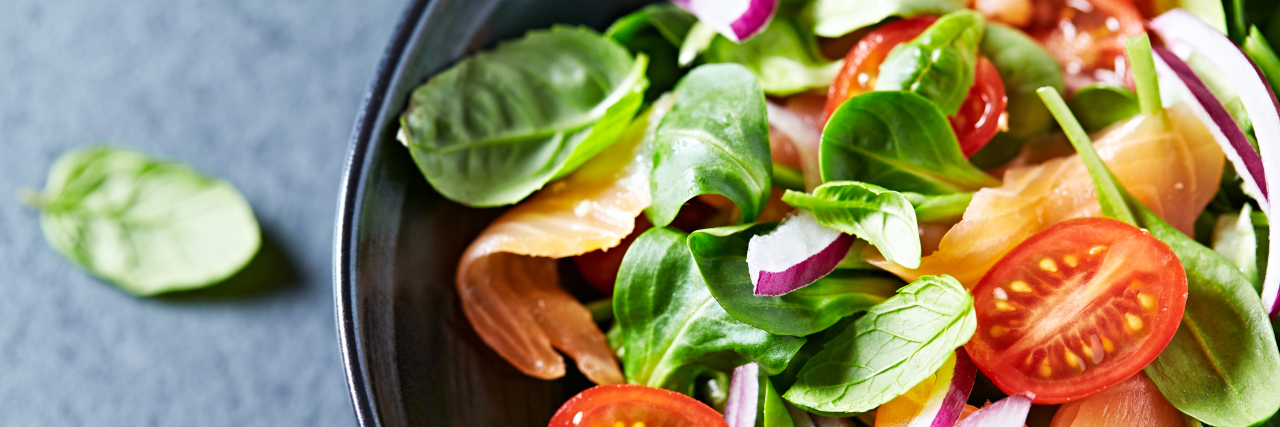The 'Healthy' Advice That Could Harm People With MCAS
Editor's Note
If you live with an eating disorder, the following post could be potentially triggering. You can contact the Crisis Text Line by texting “NEDA” to 741741.
We seem to live in a world where supposedly “healthy” advice is given at every turn. People sipping a matcha latte, popping all the supplements they can fit in their bag, and then going for a HIIT workout (with smoothie afterward of course) — and suggesting you do the same. Yet some seemingly healthy pursuits can be just the opposite if you are living with mast cell activation syndrome (MCAS) as I am. It can get a little frustrating to be almost frowned upon by not going with the crowd and for explaining why you are eating fries, not salad (more on that below!).
When you have MCAS, triggers can be very individual. So if these things work for you then that’s great, but for many people, they can actually be harmful. The moral of the story? Always check things with your doctor!
1. Food and drink
Many people living with MCAS are advised to follow a low histamine diet and to avoid certain foods. When I walked out of my medical diagnosis appointment with my list of “allowed” and restricted foods, I was lost. As well as having lots of foods I loved on it, it also had many I thought were really “good” for me, such as green tea, tomatoes, spinach, and avocado. How was I going to make salad without those? Sometimes I will end up eating fries rather than a salad when I’m eating out for lunch. The alternatives on a cafe menu aren’t healthy for me as a person with MCAS. And the looks you get from others about ordering fries? Honestly, I have learned to ignore them.
2. Intense exercise
That HIIT workout, spinning class, or half marathon your friends may knock out on the weekend? Well, healthy for them perhaps, but unlikely for those with MCAS. Exercise can be a trigger for mast cell activation and so result in symptoms.
Perhaps exercise isn’t possible for you, or perhaps it needs to be of a lower intensity and activities such as yoga, pilates, or a gentle walk. I’ve learned to consult with a qualified physiotherapist to develop a program suitable for me with my various health conditions.
3. Saunas or steam rooms
There’s a lot of (controversial) talk of sweating out toxins these days by using a sauna or steam room. If I did that I would be so unwell — and yes, I’ve tried, years ago. I felt faint and had painful pink burning cheeks within minutes. It felt awful. Heat can be a trigger for mast cell activation, so I would suggest caution over this supposedly healthy pastime and, again, check with a doctor before trying it out.
4. Supplements
Some supplements can be beneficial for some of us with MCAS, but others may be harmful. There is a lot of chatter on social media about supplements and celebrities promoting products, but it’s always best to speak with a doctor before trying something new.
5. Essential oils
Fragrance seems to be everywhere at the moment. Every shop seems to have candles burning and diffusers pumping out strong-smelling scents. Gifts for birthdays and the holidays often involve perfume or scented personal care items. I have to give them all away to friends or family.
Essential oils have that healthy/wellness status. Many people find them helpful when they feel unwell, using peppermint for migraine or lavender to help with sleep. If this works for you then that’s great.
However, with MCAS this may not be possible and it could trigger an attack. After all, many people with MCAS have to wear an N95 mask (pre-pandemic, not because of it) when going to public areas due to scents.
Healthy can mean very different things for different people. It can even mean different things for those living with the same medical condition. Working out what is healthy for me has been the best way forward with my condition and to help me feel as well as I can with my chronic illness.
Getty image by barol16.

